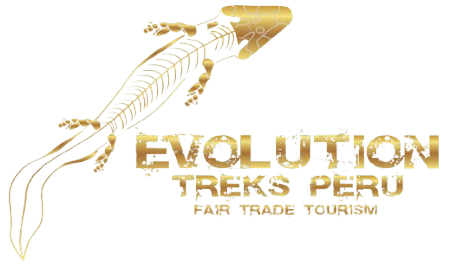
WHY EVOLUTION TREKS PERU
WHERE ADVENTURE MEETS SOCIAL RESPONSIBILITY! BE PART OF A MOVEMENT THAT’S CHANGING LIVES.
WE’RE THE FIRST TO EMPOWER WOMEN AS PORTERS AND CHAMPION FAIR TREATMENT FOR ALL WORKERS.
EXPLORE MACHU PICCHU AND RAINBOW MOUNTAIN KNOWING YOUR TRIP SUPPORTS EQUAL OPPORTUNITIES AND COMMUNITY DEVELOPMENT.
CHOOSE US FOR AN UNFORGETTABLE, ETHICALLY-DRIVEN PERUVIAN EXPERIENCE!
As Featured On:

100 % ETHICAL & SUSTAINABLE 2024 & 2025 COED 4-DAY GROUP INCA TRAIL TOURS

GLAMPING LUXURY INCA TRAIL TOURS

Travel and Hospitality Award Winner Tour Operator
OUR FOCUS ON SUSTAINABILITY, REJECTION OF EXPLOITATIVE PRACTICES, AND COMMITMENT TO FAIR PAY AND WORKING CONDITIONS HAVE SET NEW STANDARDS IN THE INDUSTRY AND HAVE EARNED US ANOTHER AWARD AS BEST ETHICAL TOUR OPERATOR BY THE TRAVEL AND HOSPITALITY AWARDS IN 2021 & 2024.

WOMEN ONLY INCA TRAIL TOURS

2D1N SHORT INCA TRAIL
SALKANTAY TREK TO MACHUPICCHU
HUCHUY QOSQO/SHORT INCA TRAIL TO MACHU PICCHU
LARES TREK+SHORT INCA TRAIL TO MACHU PICCHU
We are determined to give people their best adventure ever. Our only question is, will it be yours?
More than a travel company, Evolution Treks Peru’s staff are people who share your excitement for traveling.
Communication is key. We want to give you the best options so that you can choose the right tour.

